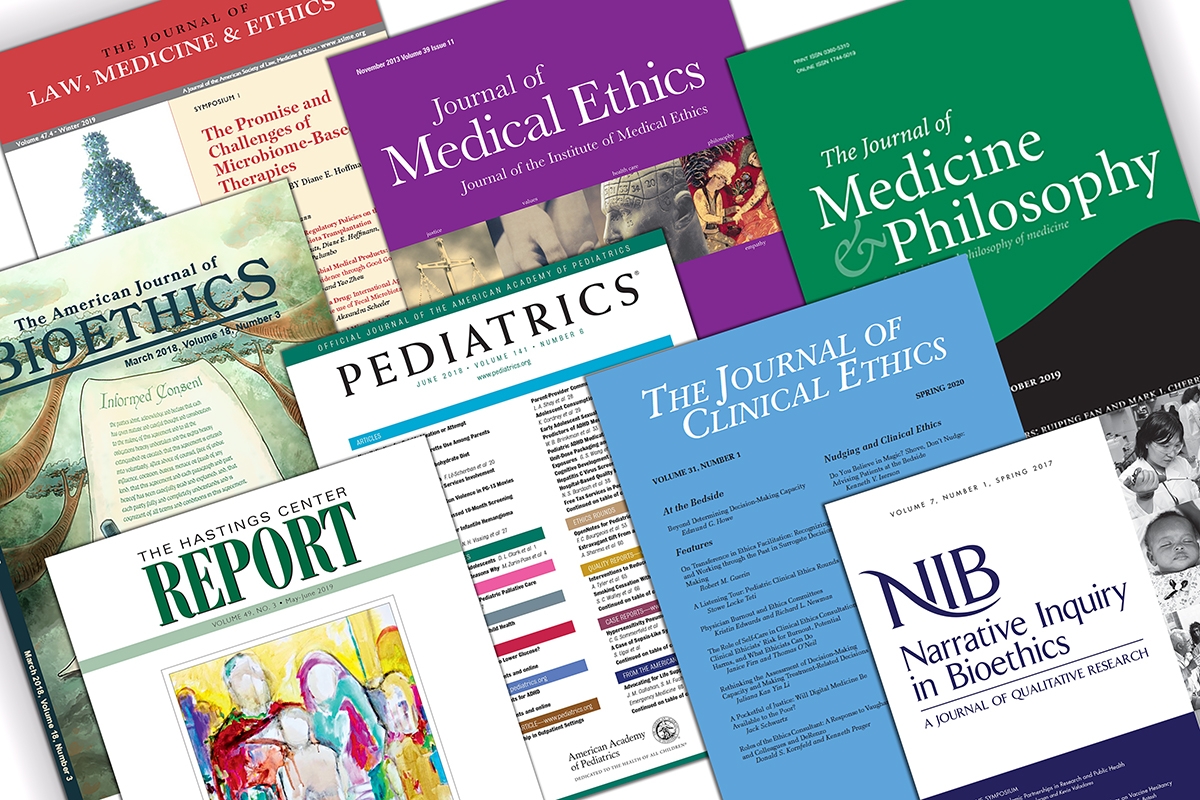



“Suffering” is a concept that is frequently invoked in discussions about medical decision-making in pediatrics. However, empirical accounts of how the term is used are lacking, creating confusion about the concept and leaving parents and providers unsure about the appropriate ways to account for it in pediatric decision-making. We conducted a qualitative content analysis of pediatric bioethics and clinical literature in selected journals from 2007 to 2017 to determine how authors define and operationalize the term when referring to issues in pediatric treatment.

Overview of volume 32 issue number 1: Informed consent in neonatal clinical trials, home medical care, biases is data-driven medicine, patient worldviews, moral courage, and physician shadowing.

So why is it that we clinicians are so often uneasy when talking about patient suffering? One simple explanation would be that, in our era of the most extraordinary scientific discoveries, this topic has been neglected because it is so profoundly subjective, impossible to measure, quantify or compare. I propose an additional explanation; entering the world of suffering compels a response that we are not sure we can deliver. Our doubts originate in shortcomings of the health care system itself, neglect by the educational system, and from the burden of our own suffering.

The theme of the book tackles many ethical issues, including the abortion of fetuses with prenatal diagnosis of potential disabilities, and the litigious nature of our country; Charlotte, Willow’s mother, decides to sue Piper, her best friend, for medical malpractice to compensate for her daughter’s future healthcare needs.

Information technology in the 21st century has resulted in physicians coming to rely on data. However, when clinicians are conditioned to rely on data and suppress clinical judgment, it becomes difficult to manage rare conditions where data is not available. The following discussion recounts one family’s experience with clinical counseling on a rare diagnosis and highlights these issues.

This paper presents guidance developed by a multidisciplinary group of bioethicists and patient advocates considering patient- and parent-centric approaches to informed consent in neonatal research in the context of an ongoing clinical trial for neonates with spinal muscular atrophy (SMA).

Pediatric patients who require medical care that is beyond the ability of their family to administer and/or maintain poses numerous ethical questions. Assuming the best interests of the child necessarily compel foster placement, what practical and ethical issues remain?

A lack of empathy while standing in as a translator for another physician’s patient and family raised the following question: can one be culturally insensitive to one’s own culture? The following narrative explores the divide between medical and patient/family worldviews.

Overview of Pediatric Ethicscope 2018 Volume 31 Number 1: Embracing diagnostic uncertainty; ECMO referral; moral language following pediatric death; ethical issues in genetics research; Children’s Mercy Bioethics.